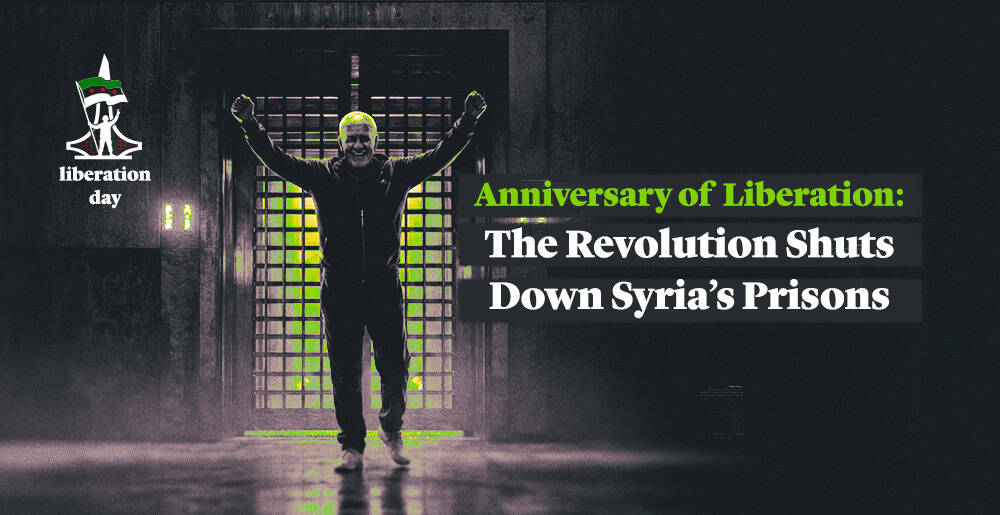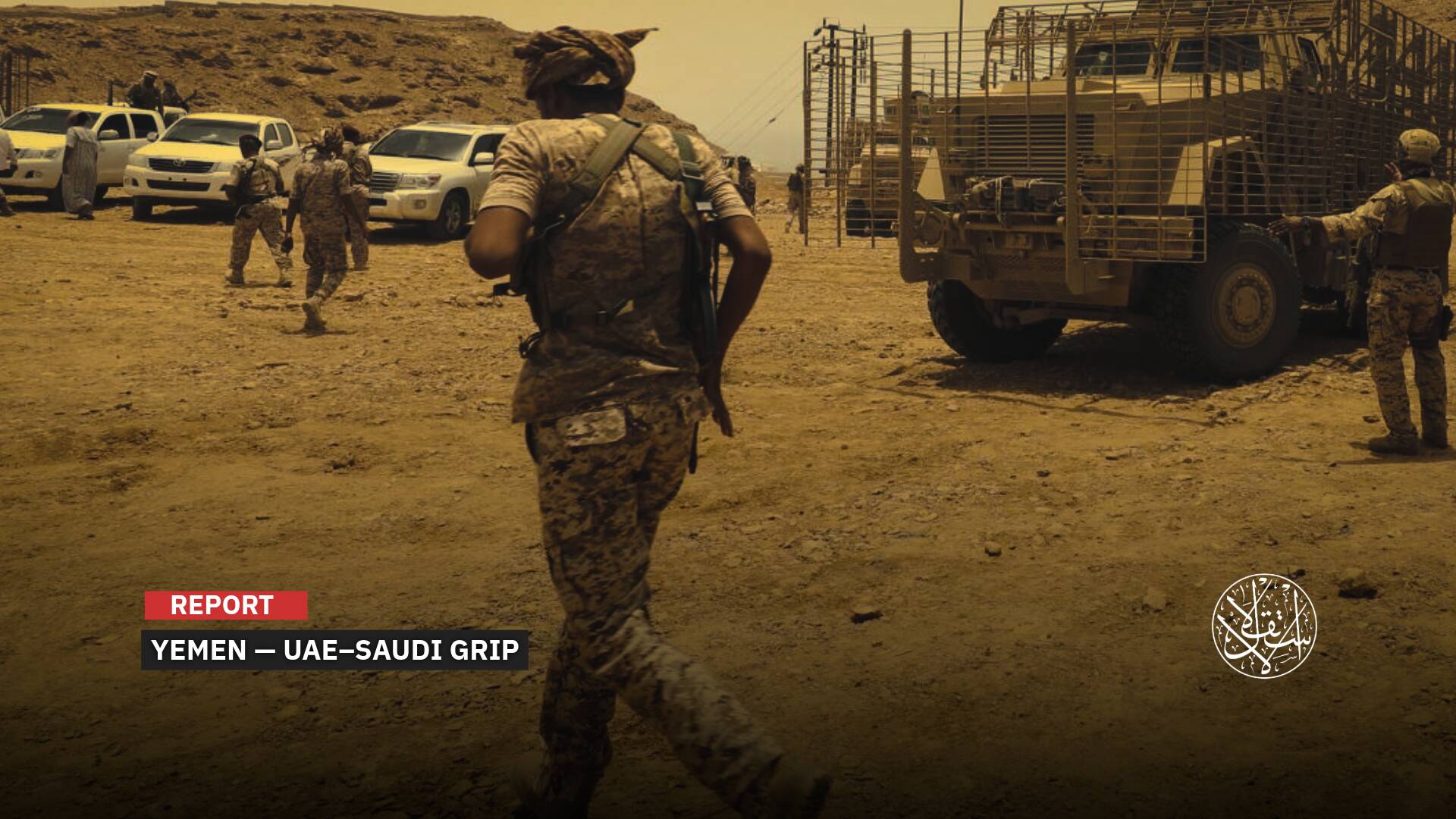Dropping Zeros from the Syrian Pound: Political Move or Economic Gain?
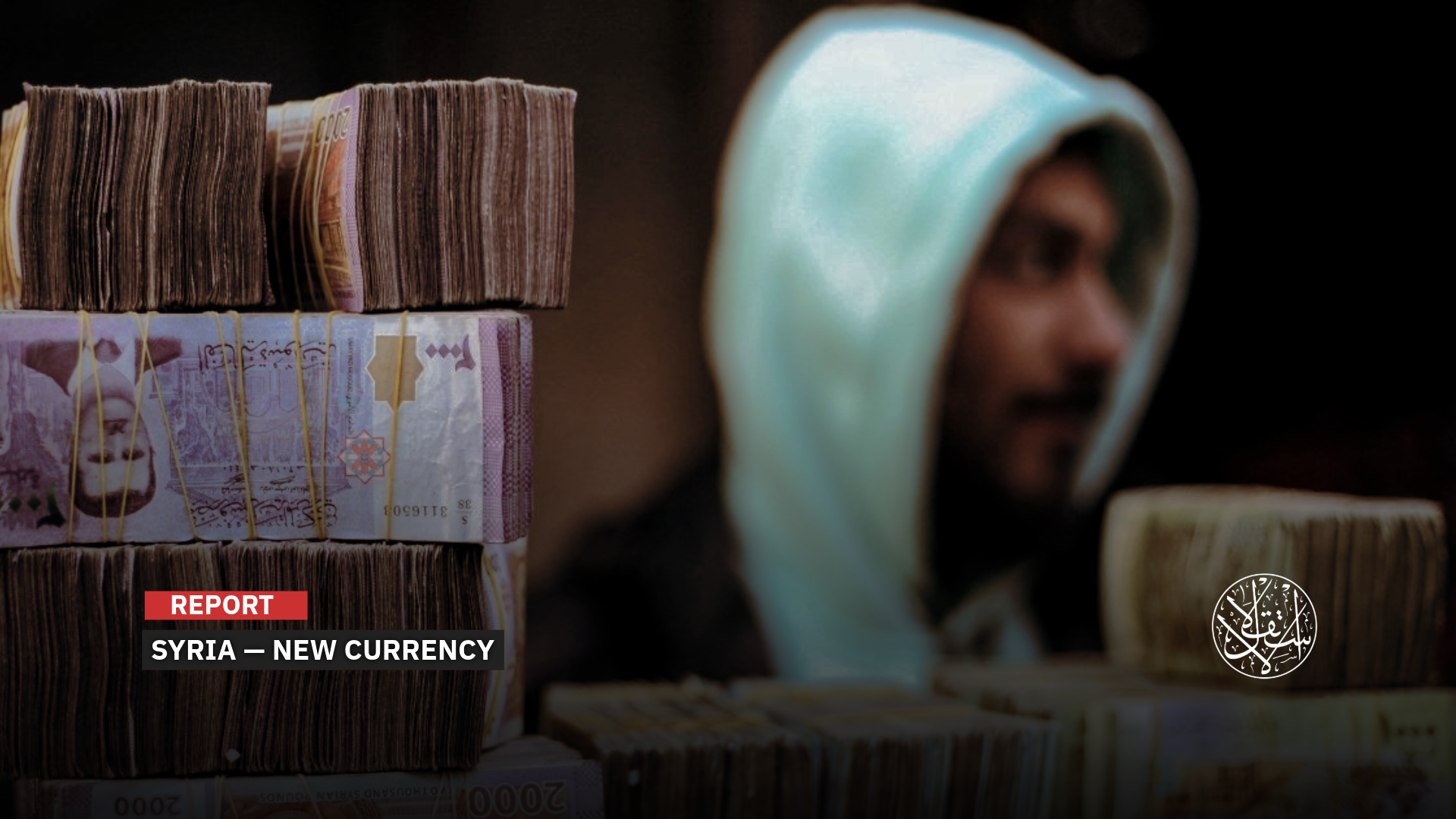
The redenomination is only effective within a broader reform program.
Replacing the Syrian pound has become a priority for the country’s new administration as it seeks a path to recovery.
Because currency is a core marker of national identity, overhauling the financial and banking sector that has been in decline for 14 years requires a new currency, analysts said.
In an effort to restore confidence in the pound, which has sharply depreciated in recent years, Central Bank Governor Abdul Qader al-Hasriya said issuing a new currency is a key part of the government’s financial and monetary reform plan. He noted the proposal remains under review and will require extensive logistical preparations.
Speaking to Saudi state-owned broadcaster al-Arabiya on August 23, 2025, al-Hasriya said the central bank has formed specialized committees with representatives from public and private banks to assess the needs and requirements of the change.
He added that the new currency would serve as a symbol of financial sovereignty, framing the move as part of building a “new republic” after political transition, and described it as “a mark of freedom and national sovereignty.”
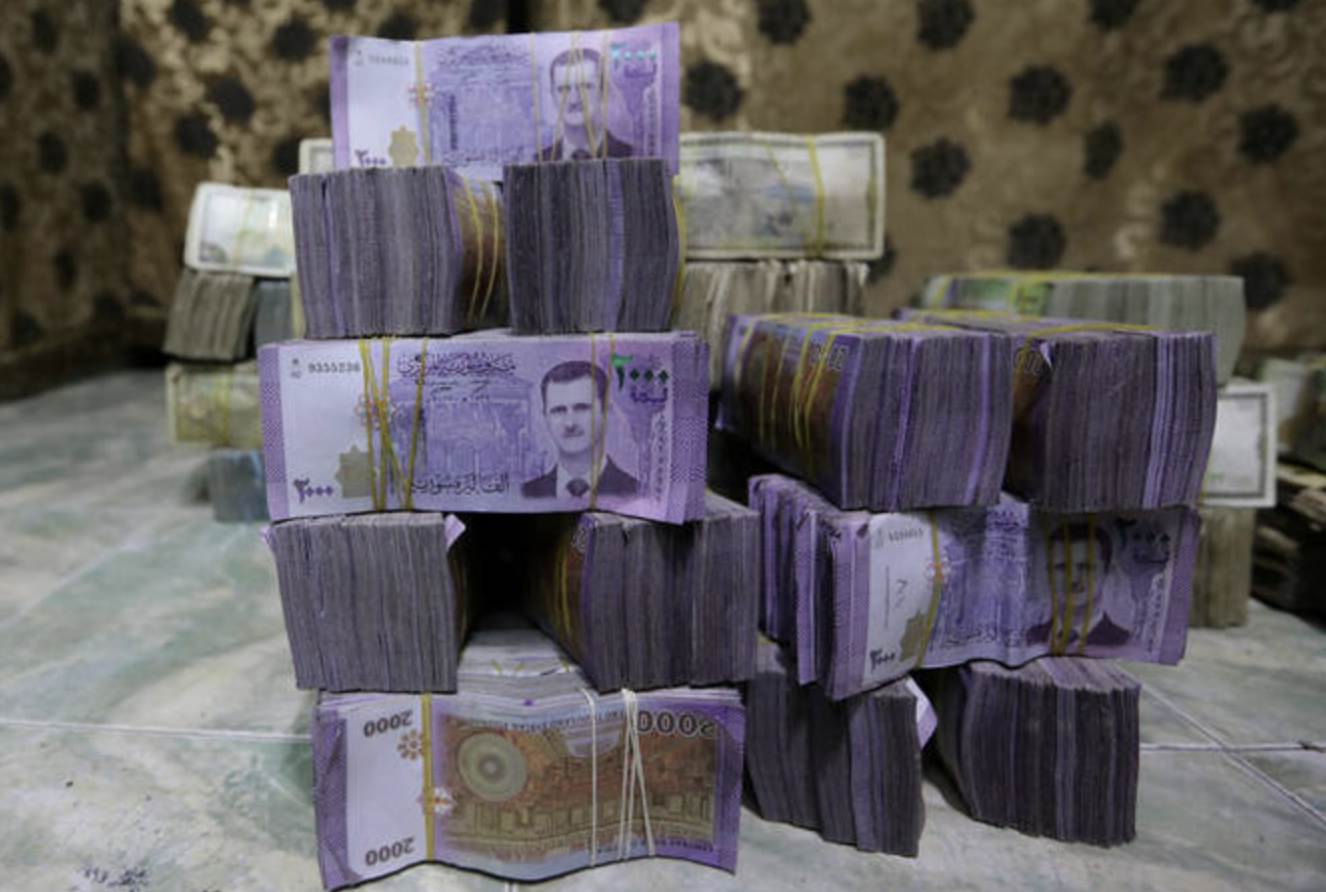
Dropping Zeros
On the issue of removing two zeros from the currency, al-Hasriya said the measure is part of the reform plan and under study. He noted that about 70 countries have taken similar steps to simplify daily transactions and reduce the volume of cash in circulation.
Seven sources familiar with the matter and documents reviewed by Reuters revealed that Syria will issue new banknotes and cut two zeros from its currency.
The move aims to strengthen the pound after its purchasing power collapsed following the 2011 revolution that ended with the ouster of Bashar al-Assad on December 8, 2024.
The Central Bank informed private banks in mid-August of its plan to issue new currency with fewer zeros to ease transactions and improve monetary stability.
“We have formed committees with public and private banks and experts from the central bank to determine the requirements for changes in the currency,” he told al-Arabiya, describing the new currency as a “necessity.”
The pound has lost more than 99% of its value since 2011. The exchange rate now stands at about 10,000 to the dollar compared with 50 before the revolution.
The collapse has complicated daily transactions, increased the use of counterfeit notes, and made transfers harder. Families often carry plastic bags filled with half a kilogram of banknotes in the 5,000-pound notes, currently the highest denomination.
Press reports said the government has chosen December 8, 2025, as the date to introduce the new currency, marking the first anniversary of Assad’s fall and his flight to Moscow as opposition forces advanced on Damascus.
If adopted, the new notes will no longer feature the portrait of Assad, which appears on the 2,000-pound bill. The 1,000-pound note depicts his father, Hafez al-Assad.
Two bankers and another Syrian source familiar with the matter told Reuters that Syria had agreed with Russian state-owned money printing firm Goznak to produce the new notes.
Syrian experts estimate the cost of printing at $200 million to $300 million.
One driver behind the plan is concern over an estimated 40 trillion pounds circulating outside the formal financial system. Issuing new banknotes would allow tighter government control of cash.
Two commercial bank executives told Reuters the central bank instructed lenders to prepare for the rollout by mid-October 2025.
Five Syrian commercial bankers confirmed to Reuters they were notified of a 12-month transition period during which old and new notes will circulate until December 8, 2026.
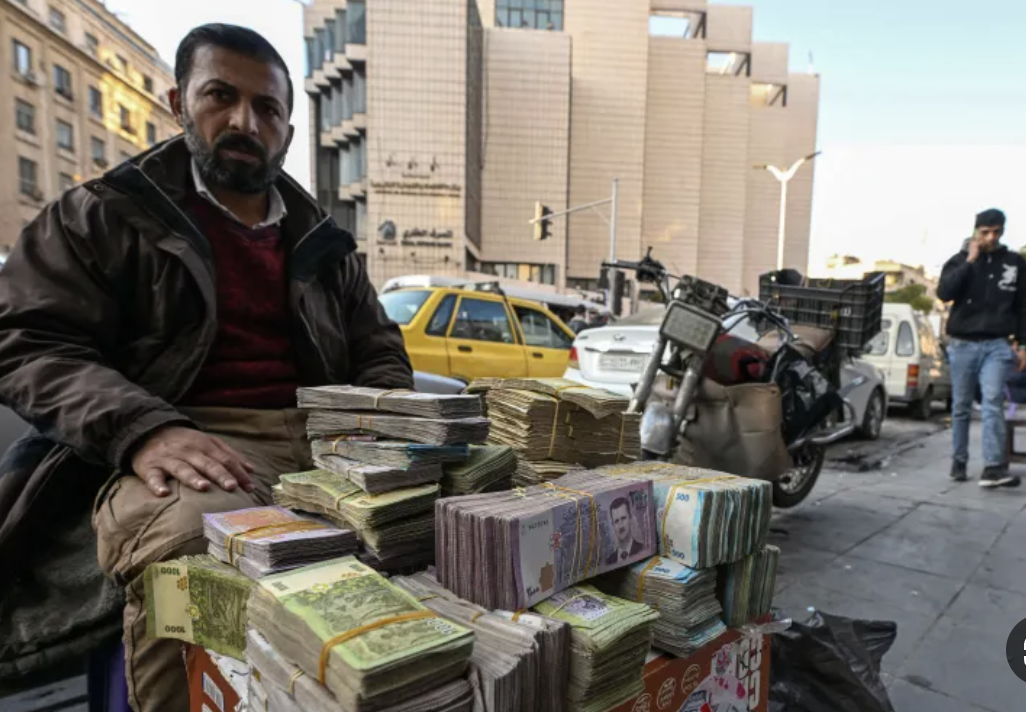
The Case for Replacement
Many experts say Syria could issue higher denominations such as 20,000-pound or 50,000-pound notes, as part of the currency replacement. That would ease transactions and storage without the full cost of a complete redenomination, which could reach hundreds of millions of dollars.
The current currency is under pressure in exchange markets and is reportedly hoarded in unknown locations by associates of the ousted Assad regime. A full replacement, they argue, would bring stability to the pound.
Central Bank Governor Abdul Qader al-Hasriya outlined three stages. Initially, the new notes will circulate gradually alongside existing bills without withdrawing or canceling any denominations. In the second, the exchange will begin. In the third, all conversions will be handled exclusively by the central bank, according to the Syrian Arab News Agency (SANA) on August 23, 2025.
Al-Hasriya stated that the new currency will feature advanced security measures to prevent counterfeiting, thereby reinforcing trust and safeguarding transactions.
Osama Kadi, Senior Advisor to the Minister of Economy and Industry in Syria, told Al-Estiklal that replacing the currency will curb speculation, money laundering, and counterfeiting while providing banks with sufficient liquidity. He added that monetary stability requires growth, investment, and development, which must accompany the reform.
Kadi stressed the need to peg the pound’s nominal value to the dollar with constant central bank intervention and financial support through deposits from allied states. He noted earlier proposals to print only one new denomination until a fair exchange rate was set, but central bank studies concluded that a full replacement and the removal of two zeros would best promote stability and liquidity.
He said banking infrastructure must be strengthened before the December 8, 2025, deadline. That includes raising daily withdrawal limits, expanding card payment systems, and installing modern ATMs to reduce reliance on cash.
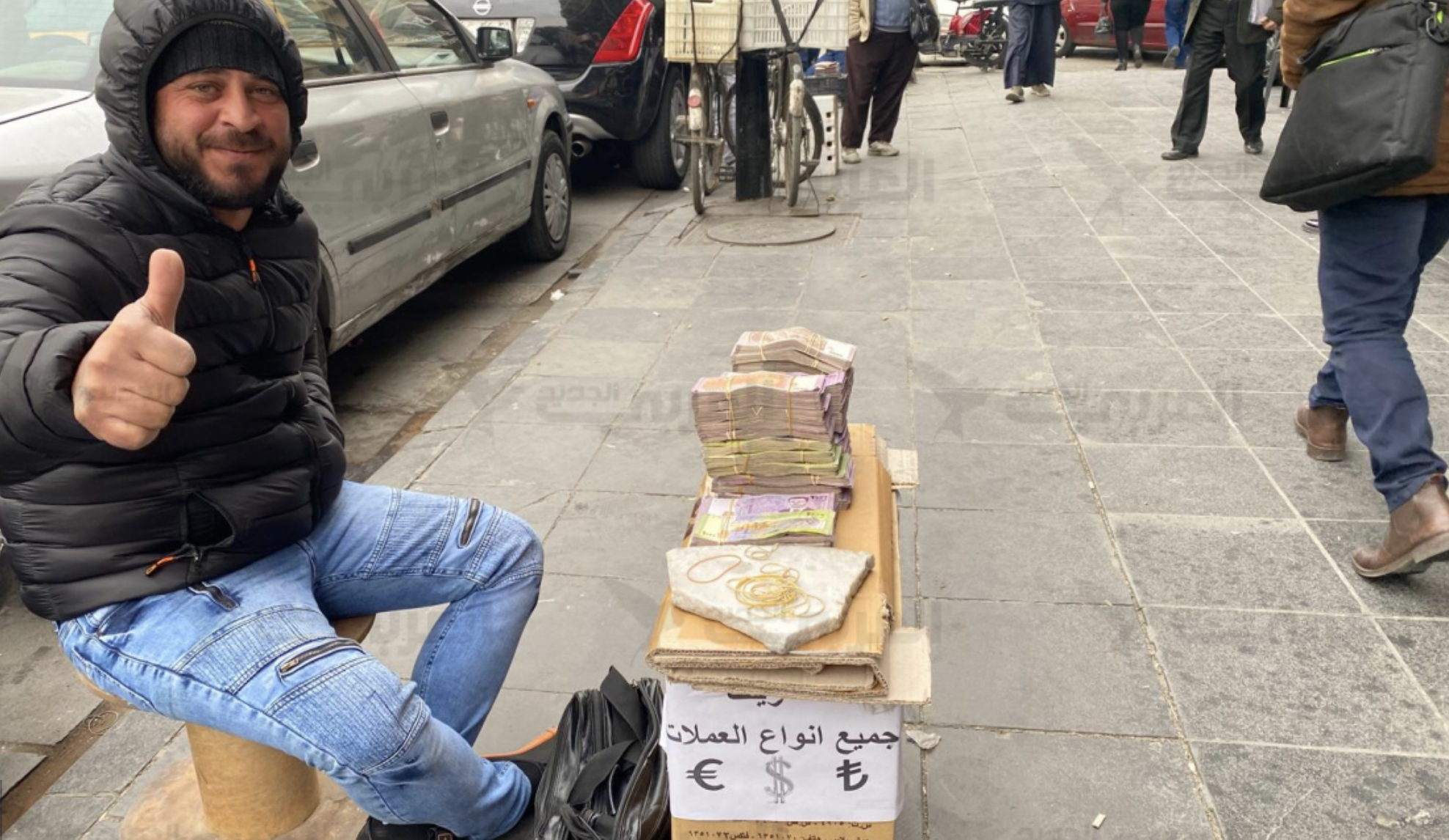
Streamlining Calculations
Experts say removing two zeros from the Syrian pound is a nominal adjustment that does not improve purchasing power. The aim is to simplify daily transactions, reduce the volume of cash in circulation, and support gradual economic recovery.
The measure would also ease the burden of handling large amounts of notes, cut calculation errors, and help restore confidence in the pound.
Economist and banking expert Ibrahim Qushji told SANA that converting ten thousand pounds into one hundred new pounds does not change the real value of money but makes accounting and pricing more accurate in both public and private institutions. He said smaller denominations would help rebalance the currency structure and allow more precise pricing.
Qushji added that redenomination would require careful repricing of goods and services and adjustments to salary scales to protect vulnerable groups. He called for laws to preserve the value of debt and securities and to align prices with the new pound and the exchange rate in both official and parallel markets. He described the step as a strategic move toward comprehensive monetary reform that could boost efficiency, restore trust in the pound, and stimulate growth.
Observers note that redenomination is only effective within a broader reform program. Otherwise, it risks becoming another entry in Syria’s long list of crises.
Turkiye removed six zeros from its lira in 2005, a step credited with stabilizing the currency and improving confidence. Iraq’s plan to cut three zeros from the dinar, proposed in 2010, was never carried out.
Questions remain over whether Syria has a clear regulatory framework for the process, given the government’s limited control over territory. Kurdish-led forces still hold large areas of al-Hasakah, ar-Raqqah, and Deir Ez-zur, while unrest continues in Sweida, where Druze leaders have demanded separation and appealed to the Israeli Occupation for protection.
Analysts say removing two zeros could help restore confidence in the pound and improve financial transactions. Without comprehensive economic and monetary reform, however, its impact will be limited.
Sources
- Central Bank Governor Reveals Details of New Currency Plan and Printing Location [Arabic]
- Syria Plans to Phase Out Assad’s Currency and Remove Two Zeros [Arabic]
- Exclusive: Sources Say Syria Plans to Revalue Currency and Remove Two Zeros to Stabilize Economy [Arabic]
- Syria Announces Preparations to Issue New Currency with Anti-Counterfeiting Features [Arabic]








